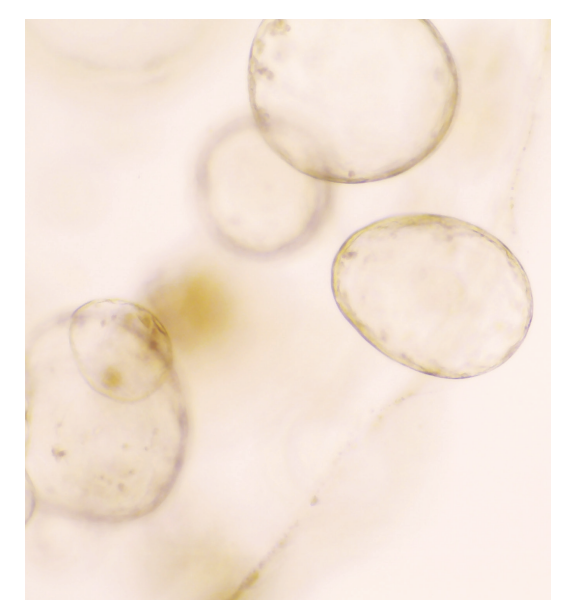Article highlights & insights
Prostate cancer is a complex disease that affects millions of men globally, predominantly in high human development index regions. Patients with localised disease at a low to intermediate risk of recurrence generally have a favourable outcome of 99% overall survival for 10 years if the disease is detected and treated at an early stage. Key genetic alterations include fusions of TMPRSS2 with ETS family genes, amplification of the MYC oncogene, deletion and/or mutation of PTEN and TP53 and, in advanced disease, amplification and/or mutation of the androgen receptor (AR).
Prostate cancer is usually diagnosed by prostate biopsy prompted by a blood test to measure prostate-specific antigen levels and/or digital rectal examination. Treatment for localised disease includes active surveillance, radical prostatectomy or ablative radiotherapy as curative approaches. Men whose disease relapses after prostatectomy are treated with salvage radiotherapy and/or androgen deprivation therapy (ADT) for local relapse, or with ADT combined with chemotherapy or novel androgen signalling-targeted agents for systemic relapse. Advanced prostate cancer often progresses despite androgen ablation and is then considered castration-resistant and incurable.
Current treatment options include AR-targeted agents, chemotherapy, radionuclides and the poly(ADP-ribose) inhibitor olaparib. Current research aims to improve prostate cancer detection, management and outcomes, including understanding the fundamental biology at all stages of the disease.
Prostate cancer is a complex disease that affects millions of men globally, predominantly in high human development index regions. Patients with localised disease at a low to intermediate risk of recurrence generally have a favourable outcome of 99% overall survival for 10 years if the disease is detected and treated at an early stage. Key genetic alterations include fusions of TMPRSS2 with ETS family genes, amplification of the MYC oncogene, deletion and/or mutation of PTEN and TP53 and, in advanced disease, amplification and/or mutation of the androgen receptor (AR).
Prostate cancer is usually diagnosed by prostate biopsy prompted by a blood test to measure prostate-specific antigen levels and/or digital rectal examination. Treatment for localised disease includes active surveillance, radical prostatectomy or ablative radiotherapy as curative approaches. Men whose disease relapses after prostatectomy are treated with salvage radiotherapy and/or androgen deprivation therapy (ADT) for local relapse, or with ADT combined with chemotherapy or novel androgen signalling-targeted agents for systemic relapse. Advanced prostate cancer often progresses despite androgen ablation and is then considered castration-resistant and incurable.
Current treatment options include AR-targeted agents, chemotherapy, radionuclides and the poly(ADP-ribose) inhibitor olaparib. Current research aims to improve prostate cancer detection, management and outcomes, including understanding the fundamental biology at all stages of the disease.
Institute Authors
Groups
Group leader
Research topics & keywords
All publications
https://doi.org/10.1016/j.ccell.2025.04.001
Stromal lipid species dictate melanoma metastasis and tropism
24 April 2025
Institute Authors (5)
Amaya Viros, Duncan Smith, Garry Ashton, Alex Baker, Tim Somervaille
Labs & Facilities
Biological Mass Spectrometry, Histology, Visualisation, Irradiation and Analysis
Research Group
Skin Cancer & Ageing
24 April 2025
https://doi.org/10.1038/s41467-025-58343-y
A human model to deconvolve genotype-phenotype causations in lung squamous cell carcinoma
4 April 2025
Institute Authors (4)
Carlos Lopez-Garcia, Robert Sellers, Sudhakar Sahoo, Caroline Dive
Labs & Facilities
Computational Biology Support
Research Group
Translational Lung Cancer Biology
4 April 2025
https://doi.org/10.1186/s12943-024-02157-x
The PI3K-AKT-mTOR axis persists as a therapeutic dependency in KRASG12D-driven non-small cell lung cancer
12 November 2024
Institute Authors (1)
Amaya Viros
Labs & Facilities
Genome Editing and Mouse Models
Research Group
Skin Cancer & Ageing
12 November 2024
https://doi.org/10.1186/s13045-024-01610-0
The small inhibitor WM-1119 effectively targets KAT6A-rearranged AML, but not KMT2A-rearranged AML, despite shared KAT6 genetic dependency
8 October 2024
Institute Authors (6)
Georges Lacaud, Mathew Sheridan, Michael Lie-a-ling, Liam Clayfield, Jessica Whittle, Jingru Xu
Research Group
Stem Cell Biology
8 October 2024
/wp-content/uploads/2024/11/Annual-Report-2023.pdf
2023 Annual Report
13 September 2024
13 September 2024
https://doi.org/10.1126/science.adh7954
Vitamin D regulates microbiome-dependent cancer immunity
25 April 2024
Institute Authors (3)
Evangelos Giampazolias, Maria Koufaki, Santiago Zelenay
Research Group
Cancer Immunosurveillance
25 April 2024
Our Research
Our research spans the whole spectrum of cancer research from cell biology through to translational and clinical studies
Research Groups
Our research groups study many fundamental questions of cancer biology and treatment
Our Facilities
The Institute has outstanding core facilities that offer cutting edge instruments and tailored services from expert staff
Latest News & Updates
Find out all our latest news






